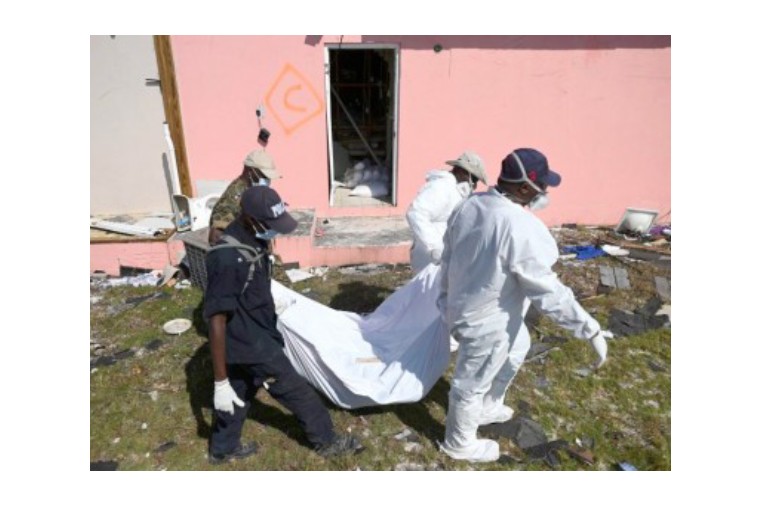- Job Market
- Upload Ad Requests
- Rates
- Home
- Video
- About Us
- Contact Us
- Business Showcase
- Archives
- Blogs
- Upload Advertisements
- Video News Release
- Front Pages
- Community Notices
- Law Enforcement
- Government
- Community Voice
- Health Care
- International
- Sports
- Politics
- Community
- Entertainment
- Advertorial 2
- Non-Profit Organisation(NPO)
- Adopt a Pet
- Tourism
- CIIPO
- Taste of Class
- Opinions & Editorial
- Environment
- Outstanding Employee
- Outstanding Performance
- Celebration
- Gardening
- Beneficial Ownership
- Tips and tricks
- Cover Stories
- Cost of Living
- Development
- Employment
- Education
- Arts and Culture
- Business
- Global News Briefs
- Hurricane Watch
- Breaking News
- Regional
- Public Notices
- Local News
- Lifestyle
- Finance
- Economic
- Election Center
- COVID - 19
- UK Territories
- Advertorial
- History
- Inspiration
- The Panel
- The Interview
- Cayman Conversation
- Community Notices
- Law Enforcement
- Government
- Health Care
- Sports
- Election Center
- Cayman Conversation
- More
- Front Pages
- Community Notices
- Law Enforcement
- Government
- Community Voice
- Health Care
- International
- Sports
- Politics
- Community
- Entertainment
- Advertorial 2
- Non-Profit Organisation(NPO)
- Adopt a Pet
- Tourism
- CIIPO
- Taste of Class
- Opinions & Editorial
- Environment
- Outstanding Employee
- Outstanding Performance
- Celebration
- Gardening
- Beneficial Ownership
- Tips and tricks
- Cover Stories
- Cost of Living
- Development
- Employment
- Education
- Arts and Culture
- Business
- Global News Briefs
- Hurricane Watch
- Breaking News
- Regional
- Public Notices
- Local News
- Lifestyle
- Finance
- Economic
- Election Center
- COVID - 19
- UK Territories
- Advertorial
- History
- Inspiration
- The Panel
- The Interview
- Cayman Conversation
Subscribe
THE BAHAMAS BATTLES BACK
THE BAHAMAS BATTLES BACK

By Mike Jarvis, London UK
The enormity of the task facing the Bahamas is daunting to say the least, as it tries to pick up the pieces from deadly Hurricane Dorian.
But, it's a task that must be tackled head on.
Indications are that the initial paralysing shock of the horrific scale of the disaster is now giving way to a resolve to rebuild.
50 people are so far confirmed to have died in the storm. Around 1,300 are still missing, a number scaled back from a previous estimate of 2,500.
That was a welcome piece of good news for the country whose northern islands of Abaco and Grand Bahama were quite literally sat on by the ferocious hurricane which made landfall on September 1st.
In the ensuing 48 hours of relentlessly pounding 180 to 200mph winds, incessant rain and 20ft storm surges, Hurricane Dorian would rip up weather records as it ripped the islands apart, especially Abaco.
Records now show that it was the most powerful storm to have made landfall in the Atlantic hurricane zone.
Early damage estimates are already running into the multi-billions.
The destruction is on an apocalyptic scale, especially on Abaco and Grand Bahama.
While the local government grapples with the huge task of recovery and rebuilding, first priorities are aid, food and shelter for the survivors, most of whom have lost everything.
The regional and global response to the plight of the battered tourist paradise has been swift and generous.
Among those leading the relief effort are the United Kingdom, the United States, Caricom, the Canadian and Dutch governments, the United Nations, and individual Caribbean countries including the Cayman Islands.
The RCIPS helicopter has been deployed to the disaster-stricken country where it has been carrying out medevac services and other relief support.
The initial emphasis on search and rescue is now shifting to “recovery, stabilisation and restoration”, according to Bahamas Prime Minister Hubert Innis in a timely and touching national address this week.
His administration had come under early pressure for shortcomings in the coordination of the rescue operation in the immediate aftermath of the devastating Category 5 storm.
“There have been problems in the coordination of this aid,” Prime Minister Minnis admitted, “due to the magnitude of this devastation.”
But he gave an assurance that efforts were being intensified to get to grips with the situation.
“I understand the deep frustration of those who have had to deal with bureaucratic roadblocks.
“We are aggressively shredding the red tape that is frustrating many who want to help,” he declared.
But where that red tape is being ‘shredded’ in the Bahamas, it was being firmly embedded by its chief disaster relief benefactor, the United States.
President Donald Trump, who was has been highly praised by the Bahamian leader for the swiftness of the US response, has come in for harsh criticism for his choice of language is addressing concerns about an exodus of hurricane refugees from the Bahamas to nearby Florida.
Many persons left destitute by Hurricane Dorian were taken the short distance to Miami, in what was hailed as a magnanimous humanitarian gesture by American authorities, business enterprise and private citizens.
But their efforts at evacuation were rather crudely and abruptly shut down by President Trump.
“Look, the Bahamas had some tremendous problems with people going to the Bahamas that weren't supposed to be there. I don't want to allow people that weren't supposed to be in the Bahamas to come in to the United States, including some very bad people and some very bad gang members and some very very bad drug dealers,” the American president declared.
His comments was seen as directed mainly at the Haitian community in the Bahamas, many of whom are known to be illegal economic migrants.
It’s also feared that many of those who lost their lives in the storm, and most of those missing, especially on the island of Abaco, were undocumented Haitians.
The regrettable tone of President Trump’s statement has been condemned as another example of his anti-immigrant posturing and particularly badly timed especially as US border control officials had assured that effective vetting procedures were in place.
There’s no question that the Bahamas has had a massive challenge with illegal immigration, especially within the country’s sizeable Haitian community.
Prime Minister himself was previously criticised for using ill-advised language in stating his country’s non-participation in the Caricom free movement project.
Caricom was among the first to go the aid of the Bahamas after Hurricane Dorian.
It’s clear that the disaster has laid bare the scale of the issue of politely termed undocumented migrants (illegal immigrants) in the Bahamas.
They might never be able to account for many of the missing, and identifying some of the dead could be a major task if they were ‘undocumented’.
It has also been reported that the US has denied Temporary Protected Status (TPS) to people from the Bahamas displaced by Hurricane Dorian, according to US media reports.
The status would have allowed Bahamians to work and live in the U.S. until the emergency at home subsides.
TPS was also granted to Monsterratians fleeing their erupting Soufriere Hills volcano in the 1990s, victims of Haiti’s 2010 earthquake, and other countries.
It's being discontinued for Haiti and is being reviewed on a country-by-country basis.
Hurricane Dorian is throwing up another challenge to the Bahamas that’s already surfacing in the area of foreign relations.
While there has yet been no clear indication of the extent to which China might get involved in the country's disaster recovery and rebuilding, the stage is already been set for a major powerplay of influences.
With billions in foreign aid needed to rebuild on Grand Bahama and Abaco, some observers are already looking at a potential hearts and minds tug-of-war between the two global superpowers.
China is already heavily invested in the Bahamas in ports, other infrastructure and business interests. The US has a vested interest in China's presence and influence on its doorstep.
How the Bahamas navigates the already choppy waters of international relations between Beijing and Washington is left to be seen as it undertakes the mammoth task of rebuilding as it needs all the help it can get.
For the moment the priorities are shelter, food and security in the wake of destructive Hurricane Dorian…and battening down the hatches once more.
There’s another storm heading towards the Bahamas.
Though forecast not to be on the scale of Dorian, it’s nevertheless the last thing they need right now.
Online Poll
Independent or Party: Independents top the Category with 23 Candidates. Select your preference
Popular News
Mexico beat Cayman 20-10 in ‘Big Match X’ Rugby
05 Jun, 2024
CIOC announces team for Paris 2024
11 Jul, 2024












Comments (0)
We appreciate your feedback. You can comment here with your pseudonym or real name. You can leave a comment with or without entering an email address. All comments will be reviewed before they are published.